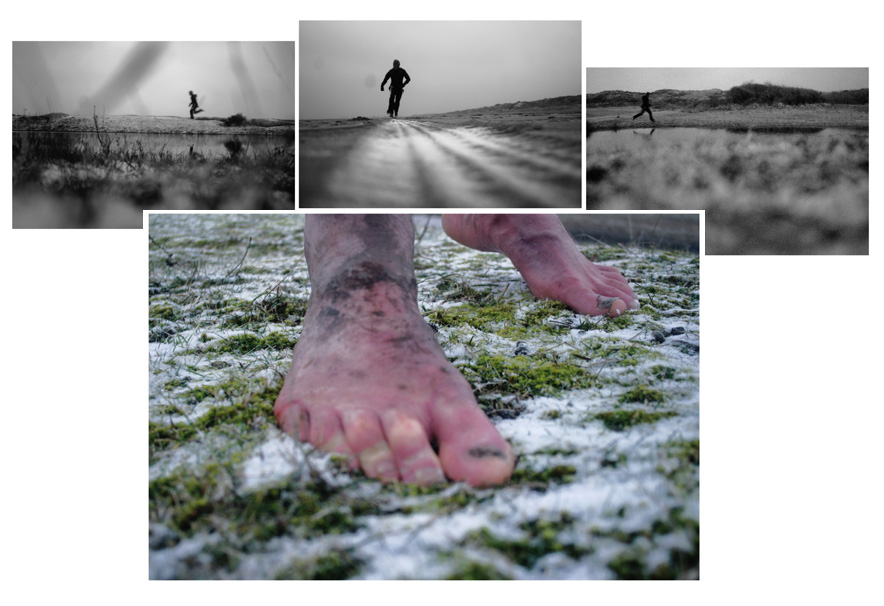
Kennemer Dunes national park and beach, "muddy" today. Every step requires effort [ effort transcends motivation ]
Min/max temperature: -2°C/0°C; humidity: 92%; precipitation: 0 mm, sea level pressure: 1028 hPa; wind from East 19.3 km/h; visibility: 5.0 kilometres; Clouds overcast 304 m.
"I like my screen well used, with every corner filled, but no arty theories clamping the action down. Nowadays I want the cutting [ film-editing ] and continuity to be as inconspicuous as possible, and all I am concerned with is to get the characters developed and the story clearly told without any directorial idiosyncrasies. [W]e are making Motion Pictures. Too many forget that. A film has got to be ocularly interesting and above all it is the picture which is the thing. I try to tell my story so much so in pictures that if by any chance the sound apparatus broke down in the cinema, the audience would not fret and get restless because the pictorial action would still hold them! Sound is all right in its place, but it is a silent picture training which counts today. Naval men have a theory that the finest navigators nowadays are the men who learnt their craft in the out-of-date sailing ships […] I am told that the talking picture has a bigger range of subjects, I argue that it also lessens the field of appeal. What appeals to the eye is universal; what appeals to the ear is local. […] I like to keep the public guessing [… I built up my interest gradually and surely and, in thrillers, bring it to a crescendo. […] it is […] knowing your script by heart. […] I have to remember that, whereas I know the story backwards, the audience has got to absorb it gradually. […] My artists, too, must behave as human beings. [ Glamour ] has nothing to do with reality and I maintain that reality is the most important factor in making a successful film. […] Next to reality, I put […] comedy [ it ] makes a film more dramatic. […] A stage play gives you intermissions for reflections on each act. These intermissions have to be supplied in a film by contrast and, if a film is dramatic or tragic, the obvious contrast is comedy. [ I ] try to supply a definite contrast. I take a dramatic situation up and to its peak of excitement and then, before it has time to start the downward curve, I introduce comedy to relieve the tension. […] I am out to give the public good, healthy, mental shake-ups. Civilisation has become so screening and sheltering that we cannot experience sufficient thrills at first hand. Therefore, to prevent our becoming sluggish and jellied, we have to experience them artificially […] But it must be pictures first and last. A little sound certainly, but only when the story offers a perfectly natural opportunity for it."
Alfred Hitchcock in 'Close Your Eyes and Visualize!', originally published in 'The Stage', July 1936, reprinted in 'Hitchcock on Hitchcock, Selected Writings and Interviews', page 247, 249, edited by Sidney Gottlieb, first published by Faber and Faber in Great Britain in 1995
"The first draft of anything is shit. When you first start to write you get all the kick and the reader gets none, but after you learn to work it’s your object to convey everything to the reader so that he remembers it not as a story he had read but something that happened to himself."
Ernest Hemingway as quoted by Arnold Samuelson, page 11 in'A Year in Key West and Cuba', published in October 1984 by Random House Inc.
"Flowers growing on a hill
Dragonflies and daffodils
Learn from us very much
Look at us but do not touch"
'Some Velvet Morning', performed by Primal Scream & Kate Moss, first released in November 2003 trough Columbia Records in the UK, music video directed by Dawn Shadforth